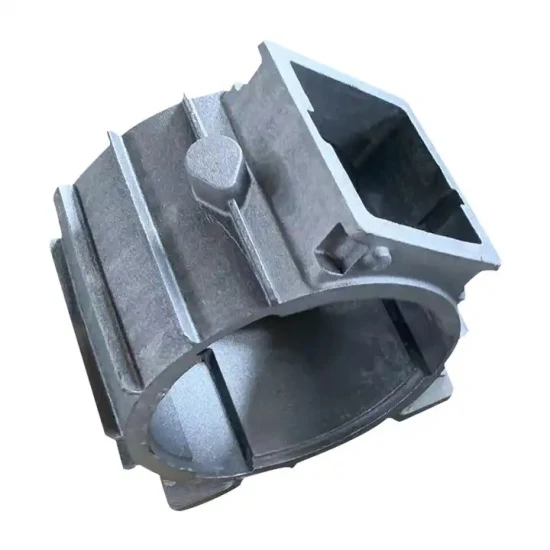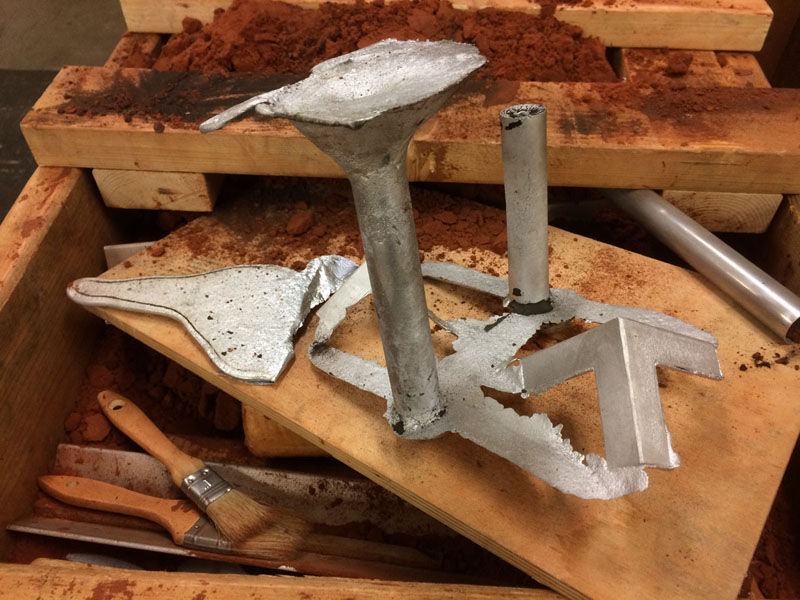The Basic Principles Of Alcast Company
The Basic Principles Of Alcast Company
Blog Article
Alcast Company Fundamentals Explained
Table of Contents10 Simple Techniques For Alcast CompanySome Ideas on Alcast Company You Need To KnowThe smart Trick of Alcast Company That Nobody is DiscussingMore About Alcast CompanyThe smart Trick of Alcast Company That Nobody is Talking AboutThe Of Alcast Company
The subtle difference hinges on the chemical material. Chemical Comparison of Cast Aluminum Alloys Silicon advertises castability by reducing the alloy's melting temperature and enhancing fluidness throughout spreading. It plays a critical role in allowing elaborate molds to be filled up precisely. Furthermore, silicon adds to the alloy's stamina and use resistance, making it important in applications where toughness is important, such as automobile parts and engine components.It also improves the machinability of the alloy, making it much easier to process into finished items. This way, iron adds to the total workability of aluminum alloys. Copper enhances electrical conductivity, making it advantageous in electric applications. It additionally boosts deterioration resistance and includes to the alloy's overall strength.
Manganese adds to the stamina of light weight aluminum alloys and enhances workability. Magnesium is a light-weight aspect that supplies strength and effect resistance to aluminum alloys.
Not known Details About Alcast Company
Zinc boosts the castability of light weight aluminum alloys and assists regulate the solidification procedure throughout casting. It enhances the alloy's stamina and firmness.

The main thermal conductivity, tensile stamina, yield strength, and elongation differ. Amongst the above alloys, A356 has the highest possible thermal conductivity, and A380 and ADC12 have the most affordable.
Little Known Facts About Alcast Company.

In precision casting, 6063 is appropriate for applications where elaborate geometries and high-quality surface coatings are extremely important. Examples consist of telecommunication units, where the alloy's superior formability permits smooth and cosmetically pleasing designs while keeping architectural integrity. Likewise, in the Lighting Solutions industry, precision-cast 6063 elements develop classy and effective illumination components that call for intricate shapes and great thermal efficiency.
The A360 shows remarkable elongation, making it optimal for complicated and thin-walled components. In accuracy spreading applications, A360 is fit for industries such as Consumer Electronics, Telecommunication, and Power Tools.
The Basic Principles Of Alcast Company
Its unique residential or commercial properties make A360 a valuable option for precision casting in these markets, improving product durability and quality. aluminum foundry. Light weight aluminum alloy 380, or A380, is an extensively used spreading alloy with numerous distinct features.
In precision spreading, aluminum 413 beams in the Customer Electronic Devices and Power Equipment markets. This alloy's exceptional deterioration resistance makes it a superb choice for outdoor applications, guaranteeing durable, resilient products in the pointed out industries.
Alcast Company Fundamentals Explained
The light weight aluminum alloy you select will considerably impact both the spreading procedure and the properties of the final item. Because of this, you must make your decision thoroughly and take an enlightened approach.
Determining the most suitable aluminum alloy for your application will indicate evaluating a vast selection of attributes. These relative alloy attributes read what he said comply with the North American Pass Away Spreading Association's guidelines, and we've split them into two categories. The very first classification addresses alloy attributes that impact the manufacturing process. The second covers features influencing the buildings of the end product.
See This Report on Alcast Company
The alloy you choose for die spreading straight influences a number of facets of the casting procedure, like exactly how easy the alloy is to collaborate with and if it is vulnerable to casting flaws. Warm splitting, additionally referred to as solidification cracking, is a normal die spreading problem for aluminum alloys that can lead to inner or surface-level tears or fractures.
Certain aluminum alloys are much more prone to warm breaking than others, and your selection ought to consider this. It can damage both the cast and the die, so you ought to look for alloys with high anti-soldering buildings.
Deterioration resistance, which is already a notable characteristic of aluminum, can vary significantly from alloy to alloy and is a crucial characteristic to consider relying on the ecological conditions your product will certainly be revealed to (Aluminum Castings). Use resistance is an additional building commonly sought in light weight aluminum products and can separate some alloys
Report this page